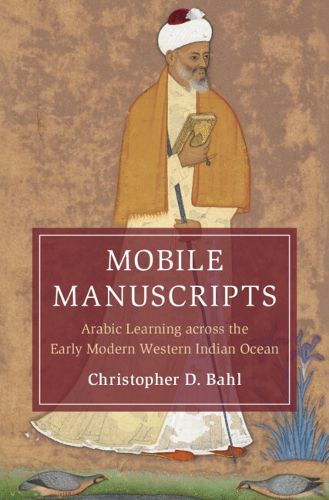Readings Newsletter
Become a Readings Member to make your shopping experience even easier.
Sign in or sign up for free!
You’re not far away from qualifying for FREE standard shipping within Australia
You’ve qualified for FREE standard shipping within Australia
The cart is loading…






In this essential new work, Christopher D. Bahl departs from the established historiography on trade, shipping, and pilgrimage to argue for the emergence of Arabic learning as a crucial form of transoceanic mobility from the fifteenth to the seventeenth centuries. From Egypt to the Hijaz, Yemen and further on to Gujarat and the Deccan, networks of manuscript circulation created shared social and cultural spaces across the early modern western Indian Ocean, in which South Asia was a key node of connection. Largely unstudied Arabic manuscripts from collections in eight different archives offer a new source base to explore the region as a hub of Arabic scholarly culture, while marginalia and notes provide an empirical treasure trove for the study of social spaces and cultural practices. This is the first book to trace these truly transoceanic encounters between scholars, sultans, scribes, readers, and librarians.
$9.00 standard shipping within Australia
FREE standard shipping within Australia for orders over $100.00
Express & International shipping calculated at checkout
In this essential new work, Christopher D. Bahl departs from the established historiography on trade, shipping, and pilgrimage to argue for the emergence of Arabic learning as a crucial form of transoceanic mobility from the fifteenth to the seventeenth centuries. From Egypt to the Hijaz, Yemen and further on to Gujarat and the Deccan, networks of manuscript circulation created shared social and cultural spaces across the early modern western Indian Ocean, in which South Asia was a key node of connection. Largely unstudied Arabic manuscripts from collections in eight different archives offer a new source base to explore the region as a hub of Arabic scholarly culture, while marginalia and notes provide an empirical treasure trove for the study of social spaces and cultural practices. This is the first book to trace these truly transoceanic encounters between scholars, sultans, scribes, readers, and librarians.